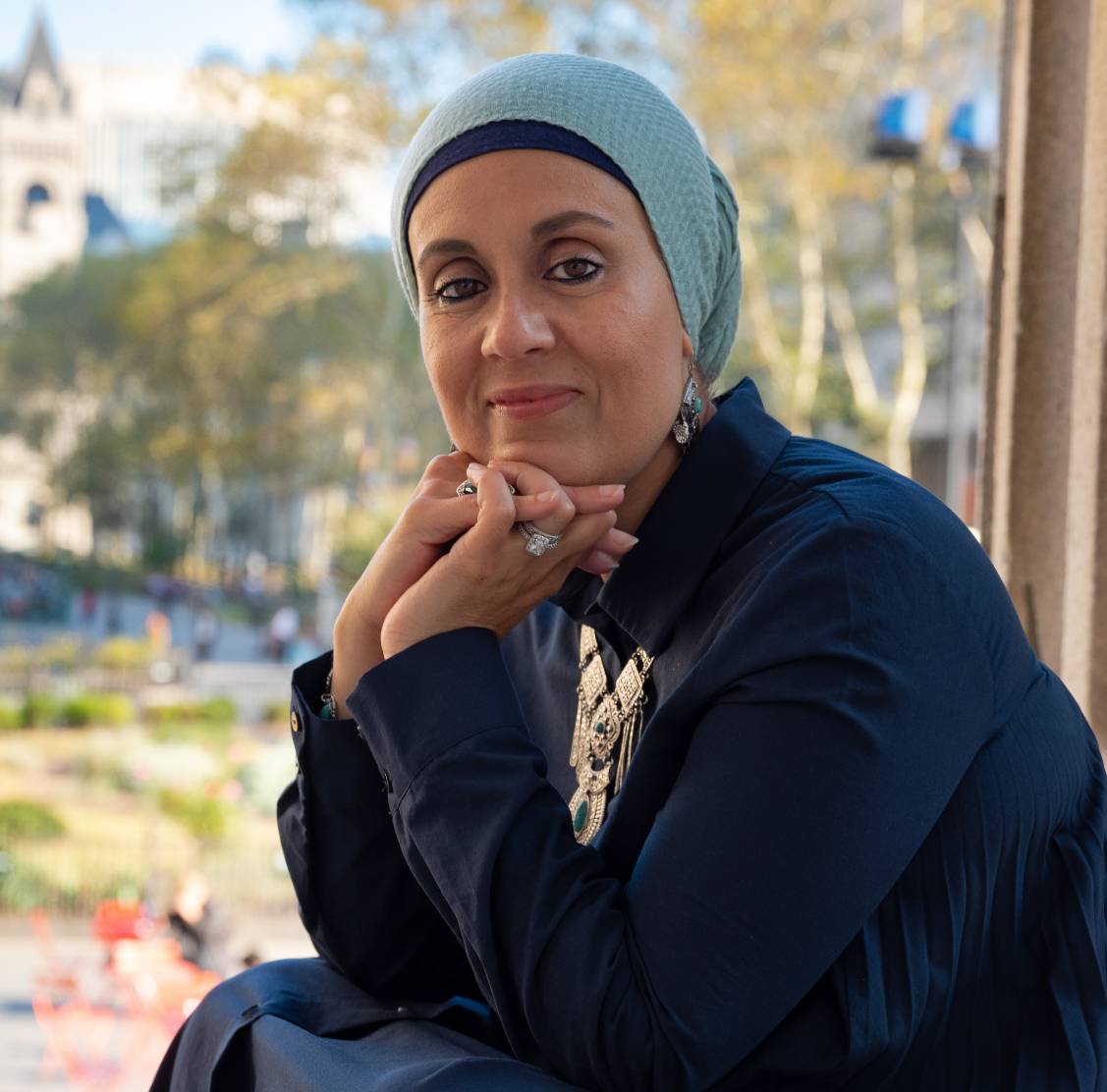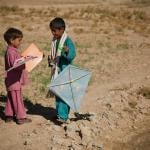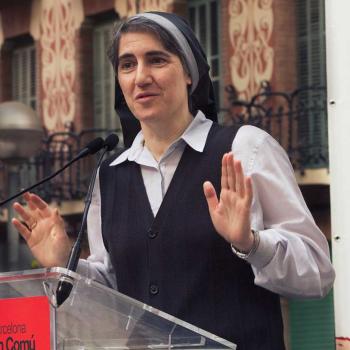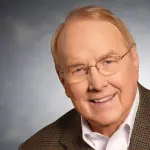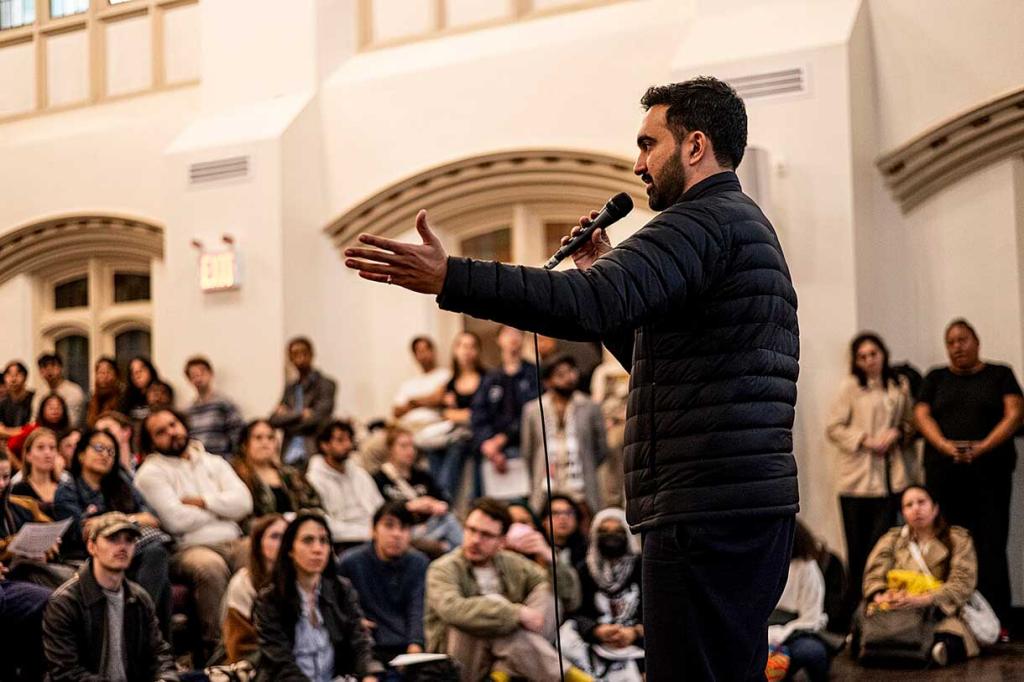
November 11, 2024, Image courtesy of Bingjiefu He, CC BY-SA 4.0, via Wikimedia Commons.
Covering the Crossroads: Faith at the Center of Today’s Biggest Issues
Reclaiming the sacred voice in public discourse
There is a dangerous myth in today’s media landscape: that faith only shows up when it’s extreme.
When we turn on the news, we see religion either as a source of division or as a quiet figure in the background—appearing at candlelight vigils or funerals, but absent from the rooms where policy and culture are shaped.
We hear religious leaders react, but we rarely see them lead.
But as a Muslim woman, a faith leader, and an educator working at the intersection of community, civic engagement, and justice—I can tell you:
Faith is not silent.
Faith is at the forefront.
Faith is at the border.
Faith is in the food banks.
Faith is in the school hallways.
Faith is in the grief—but also in the joyous grind.
And yet, the media too often fails to see us.
This needs to change.
Faith and Immigration: More Than a Policy Debate
Islam teaches us: “And do good to parents, relatives, orphans, the needy, the near neighbor, the stranger…” (Qur’an 4:36). The word stranger in Arabic, ibn al-sabeel, literally means “the son of the road”—someone displaced, vulnerable, traveling without support.
In our tradition, welcoming the stranger is not optional. It’s sacred.
And yet, today’s headlines tell a harsher story: mass deportations continue, such as the March 2025 removal of over 130 Venezuelans to El Salvador—many held indefinitely without due process—under an invoked wartime law.
Even U.S. citizens aren’t exempt: ICE has wrongfully detained American-born children, veterans, and others in sweeping raids.
U.S.-Born Children Deported
The political rhetoric has escalated, too. In July 2025, President Trump threatened to arrest and deport naturalized U.S. citizen Zohran Mamdani, a prominent Muslim politician, after Mamdani vowed to block ICE raids in New York. Mamdani also happens to be the Democratic mayoral candidate who received the highest number of votes in New York City primary election history. A GOP congressman even called for his citizenship to be revoked and deported. These threats aren’t abstract—they’re chilling examples of how immigration policy and political intimidation are converging in real time.
When immigrants and refugees make headlines, the media rarely highlight the churches, mosques, synagogues—and interfaith coalitions—working tirelessly in neighborhoods across the country: offering legal clinics, shelter, and solidarity. Coverage all too often flattens faith voices into two camps: those who demonize the outsider and those absent entirely.
This must change. The moral labor of faith communities on the frontlines of migration isn’t charity—it’s covenant. We’re not spectators in the immigration debate—we are stakeholders, guided by conscience and commandment.
Economic Justice: Where Are the Prophets of the Present?
The Prophet Muhammad (peace be upon him) was a merchant—and he preached fair trade, honest weights, and the importance of paying workers on time.
He condemned the hoarding of wealth, and uplifted those who gave freely in secret.
Today, economic inequality is among the most pressing issues facing our society. Yet when the media covers inflation, debt, and poverty, where are the voices speaking from faith traditions that demand economic dignity?
We don’t hear the mosque collecting zakat (obligatory charity) for the local housing crisis.
We don’t hear the rabbi reminding her congregation that “tzedakah” isn’t just generosity—it’s justice.
We don’t hear the pastor advocating for living wages in the tradition of the Gospel.
Faith communities are not passive observers of the economy. We are running community pantries. We are organizing co-ops. We are resisting exploitation.
And we deserve to be seen not as relics of the past—but as radical voices for equity in the present.
Gun Violence: Mourning Isn’t Our Only Role
Every time gun violence takes another life, faith communities are called upon to comfort the broken-hearted. And we do. We show up with prayer, presence, and peace.
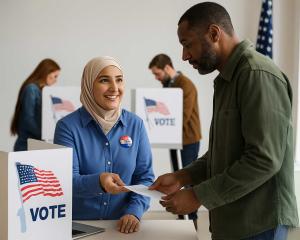
| Image Created in Dalle for Patheos.
But let’s be clear: we do more than mourn.
We advocate.
We march.
We meet with lawmakers.
We bury children—and then we organize to ensure others don’t have to.
Yet the media often reduces us to passive grievers, instead of prophetic voices demanding change.
Let’s look at the reality: in 2023, the U.S. saw over 46,700 gun-related deaths—more than half of them by suicide, and nearly 18,000 by homicide. In 2024, non-suicide gun deaths dropped to 16,576, while over 31,000 people were injured by firearms. Alarmingly, over 5,000 children and teens were shot, and 1,400 of them died. There were 499 mass shootings in 2024 alone—averaging more than one per day.
Even though the numbers slightly declined, the scale of suffering is still staggering. And so is the silence when it comes to how these numbers are covered. The media focuses on events—but not on the moral weight behind them.
Our faith teaches that preserving life is sacred. In the Qur’an, it is written: “If anyone saves a life, it is as if they saved all of humanity” (Qur’an 5:32). So when imams, pastors, rabbis, and spiritual leaders call for gun reform, it is not a political position—it is a spiritual obligation.
We are not just spiritual janitors cleaning up after a broken society. We are builders of a better one. And we will continue to lead with faith, facts, and fierce love for our communities—whether or not the cameras are rolling.
Climate Crisis: Beyond Partisan Talking Points
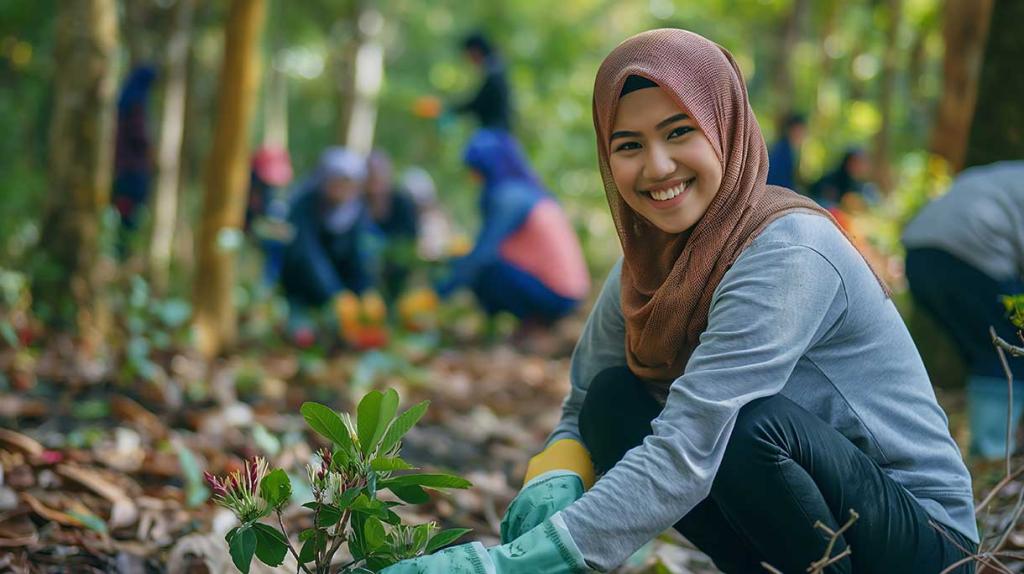
One of the most overlooked aspects of climate coverage is the moral and spiritual leadership coming from faith communities. In the Qur’an, it is written: “Corruption has appeared on land and sea because of what people’s hands have done” (30:41). This isn’t just a warning—it’s a call to responsibility.
Around the country, faith leaders are taking that responsibility seriously. From churches installing solar panels, to Jewish communities organizing tree-planting drives, to Indigenous activists defending sacred land—faith-based climate action is thriving. And at the forefront of this interfaith movement is GreenFaith, a global organization that mobilizes people of all religions to fight for environmental justice.
GreenFaith’s U.S. campaigns bring together clergy and lay people across traditions—Protestants, Catholics, Muslims, Buddhists, Hindus, Jews, Sikhs, and more. Their “Faiths for Climate Justice” rallies, divestment campaigns, and civil disobedience actions have united thousands in calling for policies that reflect both science and spiritual values.
Among their key leaders is Nana Firman, an American Muslim environmentalist and former Muslim outreach director at GreenFaith. She’s helped champion “Green Ramadan” initiatives that encourage sustainability practices during the holy month and has spoken globally about the moral imperative for climate action rooted in Islamic values of balance (mizan) and stewardship (khalifah).
But too often, the media reduces environmental activism to a partisan cause, missing the broader truth: for many people, protecting the Earth is not political—it’s sacred.
Faith communities aren’t just reacting to climate change. We are proactively shaping how society should respond—with compassion, intergenerational responsibility, and courage. It’s time media outlets spotlight this faith-rooted leadership—not just as a feel-good aside, but as a vital force for justice and change.
Reproductive Rights: Nuance, Not Noise
Perhaps no issue is more misrepresented than the intersection of faith and reproductive rights. Media coverage often reduces religious voices to predictable polarities—pro-life vs. pro-choice—ignoring the nuanced conversations happening within communities of faith.
And yet, many Muslim Americans are actively engaging with reproductive justice in thoughtful, compassionate ways. As reported by Truthout, groups like HEART (Health, Empowerment, Advocacy, Rights & Targets) and Muslim Advocates are leading this important work
HEART, a grassroots network, offers reproductive health education tailored for Muslim communities, grounding their outreach in Islamic ethics of care, bodily autonomy, and well-being. They especially focus on equitable access to sexual and reproductive health information—breaking taboos and empowering women, without contradicting faith values .
Muslim Advocates, a well-established legal and policy organization, has launched a reproductive justice initiative to address misinformation, advocate for accessible care, and uplift the voices of Muslim women. They challenge the simplistic media narrative that Muslim communities are uniformly opposed to reproductive rights .
What emerges from their work is profound nuance:
- Faith-informed compassion doesn’t end life prematurely, nor does it demand silence on bodily autonomy.
- Ethical reflection and community care can—and must—coexist with religious conviction.
- Faith communities are not limited to reactionary stances; they can lead with pastoral intentionality on complex issues.
Islamic jurisprudence supports this nuance. Scholars note that abortion is permissible under various conditions—ranging from protecting the mother’s health to addressing severe fetal abnormalities—particularly before ensoulment (often understood to be around 120 days) . That deep ethical discussion is often absent from mainstream media.
So when women of faith—especially Muslim women—step forward to share their stories and wisdom, they’re not outliers. They’re prophets of compassion, illuminating a richer moral landscape.
It’s time for the media to move beyond the binary. Faith isn’t always a barrier to reproductive justice—it can be its foundation. By highlighting organizations like HEART and Muslim Advocates—and the women leading them—the narrative becomes honest, inclusive, and rooted in lived reality.
The Real Work: Beyond Headlines and Hashtags
The truth is, faith communities are doing the hard work of democracy every single day. We are educating, healing, feeding, sheltering, protesting, and building coalitions.
We are not just praying for justice—we are praying through it.
But too often, our stories are ignored unless they confirm a stereotype—or provoke controversy.
If the media truly wants to cover the crossroads of culture and politics, it must invite faith into the center of the conversation—not as an accessory, but as an anchor.
This means hiring more faith-literate journalists.
It means amplifying diverse voices—especially women, youth, and communities of color.
It means showing up to the Friday prayer service, the Sunday potluck, the Saturday Shabbat dinner—and listening.
We don’t want a microphone only when the world is burning.
We want a seat at the table when solutions are being shaped.
Conclusion: Rewriting the Narrative Together
Faith communities are not fringe actors. We are not relics of the past. We are not just reactionary.
We are builders. Believers. Bridge-makers.
And our voices—when represented fairly—can bring light to the darkest debates.
It’s time for the media to recognize that the moral heart of this country beats in the sanctuaries, the community centers, the holy texts, and the daily acts of those who believe.
Let’s start telling that story—with care, with complexity, and with courage.


